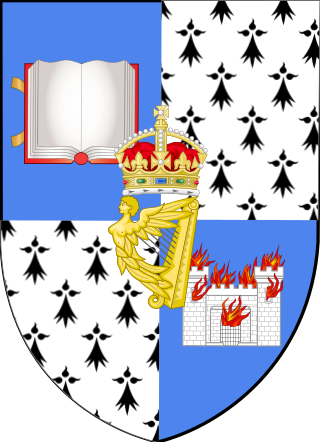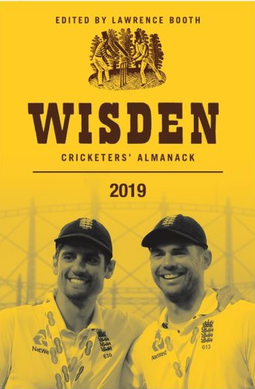
The Cambridge University Reporter, founded in 1870, is the official journal of record of the University of Cambridge, England.

The Cambridge University Reporter, founded in 1870, is the official journal of record of the University of Cambridge, England.
The Cambridge University Reporter appears within the university and online every Wednesday during Full Term, carrying notices of all university business. This includes announcements of university events, proposals for changes in regulations, Council and General Board decisions, as well as information on awards, scholarships and appointments (both at Cambridge and other universities).
The weekly numbers are supplemented by special numbers, which contain additional information of use or information to members of the university, but not included in the weekly editions. These special numbers include the Lecture List, published at the start of the Michaelmas term and giving details of all the year's lectures; the Awards issue, which comes out in early November, and gives details of all available awards and grants; and the Class-Lists, published in August, which contains details of the Tripos results for all students at the university.
Numbers of the Reporter are published at the discretion of the Registrary. Each issue of the Reporter bears the line "Published By Authority", referring to the fact that in its official part, it contains only university notices issued by authority, that is to say, by those university bodies which have a right of reporting to the university (these include the Council, the Board of Scrutiny, and any board or syndicate constituted by statute or ordinance or by grace of Regent House).
In its unofficial part, the Reporter contains Reports of Discussions; notices of non placet of Graces; notices not authorized for inclusion in the official part; notices by the colleges; notices of learned societies; and advertisements.
The printed edition of the Reporter is printed in Great Britain by the University Press, Cambridge, and published by Cambridge University Press. It is registered at the Post Office as a newspaper. Most of the Reporter is now also available on the Internet. However, because of the requirements of the Data Protection Act, some of the content of the online Reporter is limited to the cam.ac.uk domain, and some copies are made available only in printed form.
Copies of the Reporter are made available gratis to heads and praelectors of the colleges. [1] Members of the university who live in Cambridge or any member of the Regent House is entitled to receive copies of the Reporter for a term and the following vacation at a reduced price. The excess of the cost of the Reporter over the Receipts is charged to the Chest. [1]
In 2005, controversy was caused within the university when an edition of the Reporter was recalled in order to be republished with corrections. [2]

The University of Dublin, corporately designated the Chancellor, Doctors and Masters of the University of Dublin, is a university located in Dublin, Ireland. It is the degree-awarding body for Trinity College Dublin. It was founded in 1592 when Queen Elizabeth I issued a charter for Trinity College as "the mother of a university", thereby making it Ireland's oldest operating university. It was modelled after the collegiate universities of Oxford and of Cambridge, but unlike these other ancient universities, only one college was established; as such, the designations "Trinity College" and "University of Dublin" are usually synonymous for practical purposes.
The history of copyright starts with early privileges and monopolies granted to printers of books. The British Statute of Anne 1710, full title "An Act for the Encouragement of Learning, by vesting the Copies of Printed Books in the Authors or purchasers of such Copies, during the Times therein mentioned", was the first copyright statute. Initially copyright law only applied to the copying of books. Over time other uses such as translations and derivative works were made subject to copyright and copyright now covers a wide range of works, including maps, performances, paintings, photographs, sound recordings, motion pictures and computer programs.
Legal deposit is a legal requirement that a person or group submit copies of their publications to a repository, usually a library. The number of copies required varies from country to country. Typically, the national library is the primary repository of these copies. In some countries there is also a legal deposit requirement placed on the government, and it is required to send copies of documents to publicly accessible libraries.

The Congressional Record is the official record of the proceedings and debates of the United States Congress, published by the United States Government Publishing Office and issued when Congress is in session. The Congressional Record Index is updated daily online and published monthly. At the end of a session of Congress, the daily editions are compiled in bound volumes constituting the permanent edition. Chapter 9 of Title 44 of the United States Code authorizes publication of the Congressional Record.

Wisden Cricketers' Almanack, or simply Wisden, colloquially the Bible of Cricket, is a cricket reference book published annually in the United Kingdom. The description "bible of cricket" was first used in the 1930s by Alec Waugh in a review for the London Mercury. In October 2013, an all-time Test World XI was announced to mark the 150th anniversary of Wisden Cricketers' Almanack.
A weekly newspaper is a general-news or current affairs publication that is issued once or twice a week in a wide variety broadsheet, magazine, and digital formats. Similarly, a biweekly newspaper is published once every two weeks. Weekly newspapers tend to have smaller circulations than daily newspapers, and often cover smaller territories, such as one or more smaller towns, a rural county, or a few neighborhoods in a large city. Frequently, weeklies cover local news and engage in community journalism.

The law of California consists of several levels, including constitutional, statutory, and regulatory law, as well as case law. The California Codes form the general statutory law, and most state agency regulations are available in the California Code of Regulations.
The law of Florida consists of several levels, including constitutional, statutory, and regulatory law, as well as case law and local law. The Florida Statutes form the general statutory law of Florida.
The Council of the University of Cambridge is its principal executive and policy making body, having responsibility for the administration of the university, for the planning of its work, and for the management of its resources. Since the Regent House is the governing body of the university, however, the Council must report and be accountable to the Regents through a variety of checks and balances. It has the right of reporting to the university, and is obliged to advise the Regent House on matters of general concern to the university. It does both of these by causing notices to be published by authority in the Cambridge University Reporter, the official journal of the university.

A newspaper is a periodical publication containing written information about current events and is often typed in black ink with a white or gray background. Newspapers can cover a wide variety of fields such as politics, business, sports, art, and science. They often include materials such as opinion columns, weather forecasts, reviews of local services, obituaries, birth notices, crosswords, editorial cartoons, comic strips, and advice columns.
The copyright status of works produced by the governments of states, territories, and municipalities in the United States varies. Copyright law is federal in the United States. Federal law expressly denies U.S. copyright protection to two types of government works: works of the U.S. federal government itself, and all edicts of any government regardless of level or whether or not foreign. Other than addressing these "edicts of government", U.S. federal law does not address copyrights of U.S. state and local government.
The law of Texas is derived from the Constitution of Texas and consists of several levels, including constitutional, statutory, regulatory law, as well as case law and local laws and regulations.
The law of Illinois consists of several levels, including constitutional, statutory, and regulatory law, as well as case law and local law. The Illinois Compiled Statutes (ILCS) form the general statutory law.
The law of Pennsylvania consists of several levels, including constitutional, statutory, regulatory and case law. The Pennsylvania Consolidated Statutes form the general statutory law.
The law of Ohio consists of several levels, including constitutional, statutory, and regulatory, local and common law. The Ohio Revised Code forms the general statutory law.
The law of North Carolina consists of several levels, including constitutional, statutory, regulatory, case law, and local law.
The law of Massachusetts consists of several levels, including constitutional, statutory, regulatory, case law, and local ordinances. The General Laws of Massachusetts form the general statutory law.
The law of Washington consists of several levels, including constitutional, statutory, regulatory and case law, as well as local ordinances. The Revised Code of Washington forms the general statutory law.
The Commonwealth of Australia Gazette is a printed publication of the Commonwealth Government of Australia, and serves as the official medium by which decisions of the executive arm of government, as distinct from legislature and judiciary, are promulgated. Types of announcements in the Gazette include, appointments, promotions and transfers of persons to positions in the Australian Public Service (APS), previously "Commonwealth Public Service"; creation, dissolution and renaming of boards, departments and commissions within the APS; conferring of awards and honours to persons and organisations by the Government; calling of tenders and awarding of contracts by the Government.

Cambridge University Press & Assessment is a non-teaching department of the University of Cambridge. It was formed in August 2021, when the University of Cambridge merged its global academic research and education publisher Cambridge University Press and worldwide assessment arm University of Cambridge Local Examinations Syndicate.